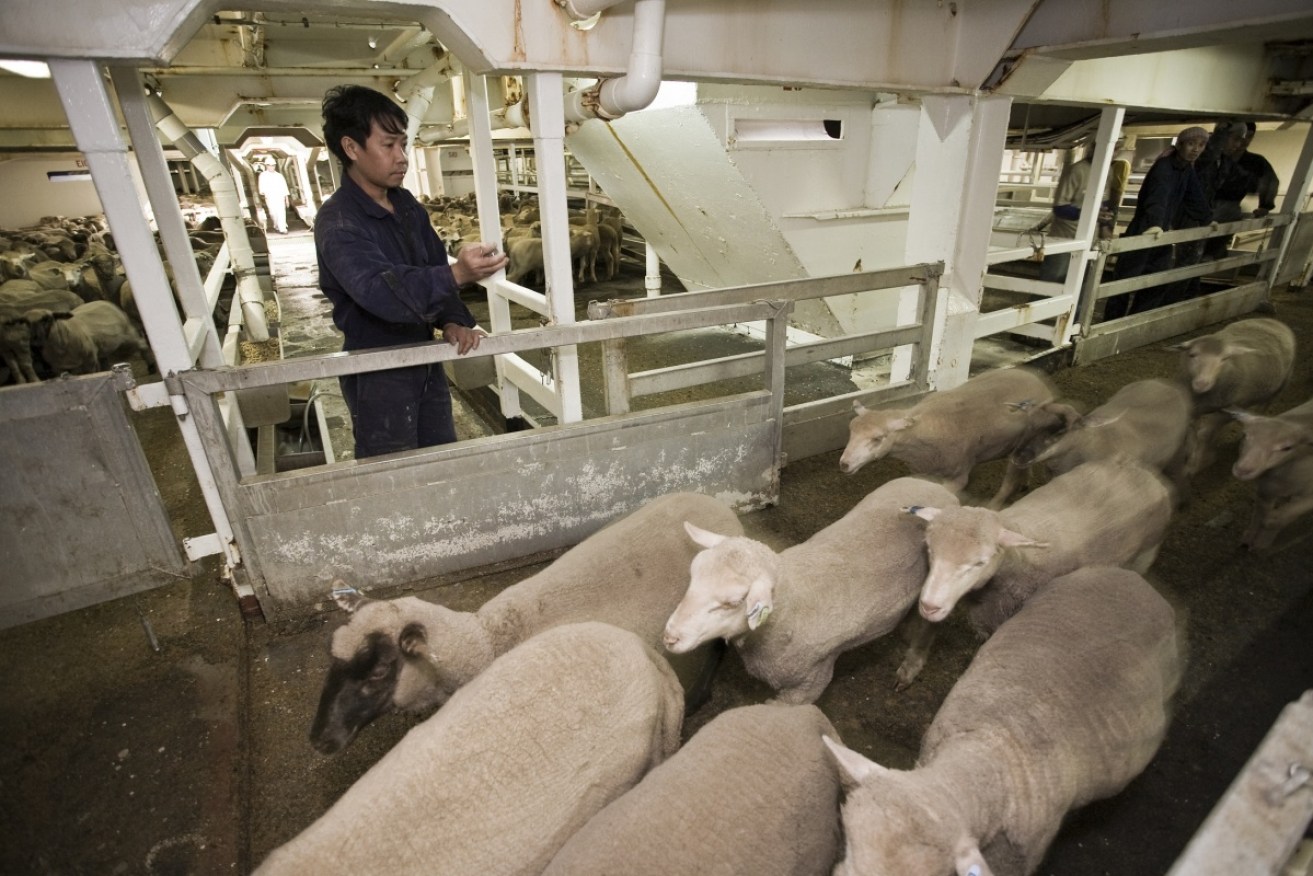Why Australia uses live export and how unethical is it

Live exports cause widespread debate amongst Australians. Photo: Australian Livestock Exporters’ Council
Agriculture Minister David Littleproud has slammed the live export industry after around 2400 sheep died from heat stress in 2017.
The incident relates to the shipment of around 64,000 sheep from Western Australia to the Middle East.
What is live export?
Live export is the commercial transport of livestock across the national border.
The stock is transported in purpose-built ships however according to Animals Australia, the conditions on board are “inherently stressful and precarious” for the animals.

The harsh reality of a live export. Photo: Icanimal
Why is it used?
Live export is used to send stock to multiple international countries.
Australian Livestock Exporters’ Council chairman Simon Crean stated in a recent speech that a “demand for live animals exists for a number of reasons, including … feedlots, breeding programs and a desire to build local industry capacity”.
“There is also the inadequacy of local supply chain infrastructure to handle chilled and frozen meat products, usually in line with where a country is in terms of economic development,” Mr Crean said.
“And of course, in many markets, there is a preference for live animals according to tradition or local culture.”
In the 1970s, there was a strong demand for food in the Middle East.
Due to this, Australian sheep producers sent animals to different countries that were willing to pay big dollars for high quality, disease free stock.
Later on, there was a demand from South-East Asia that allowed Australia’s live cattle industry to boom.
What are the advantages and disadvantages of live exports?
The live export industry causes widespread debate amongst the public.
According to Meat and Live Stock Australia, the industry employee 13,000 people across rural and regional Australia, supporting thousands of farmers and families.
The industry is worth $1.8 billion which allows the Australian economy to grow.
According to Australian Livestock Exports, if the live stock industry is eliminated, it would cause a gross cost of $300 million to stock farmers. I
It would only generate around $100 million in extra revenue for the meat processing sector.

The value of Australia’s livestock exports industry. Photo: Australian Livestock Exports
The disadvantages of live exports is mainly driven from the treatment of the stock – many consider it to be cruel.
Rough seas, temperature extremes, built up waste and crowded conditions cause illness and injury to the stock.
Death can be caused by heat stress, salmonella-induced enteritis or starvation.
According to Animals Australia, “the industry simply accepts these deaths as part of its business model”.
“In fact, up to 2 per cent of every consignment of sheep and 1 per cent of cattle can die at sea before a government investigation is even triggered.”
What are the alternatives to live exports?
The alternative would be to develop new abattoirs in Australia which could facilitate the processing of live stock.
According to the RSPCA, “a sheep processed domestically for meat is worth 20 per cent more to the Australian economy than a live export sheep”.
However, Professor of Animal Breeding and Genetics from the University of Adelaide, Wayne Pitchford, told The New Daily that Australia has very high processing costs.
This is due to labour costs, costs of utilities such as power and various other factors.
“In 2014-2015 all our beef abattoirs were at capacity and many animals needed to be moved off farm due to a drought.”
“Not having live export as an option would have led to huge financial losses and also environmental degradation with stock remaining on farm,” Mr Pitchford told The New Daily.
Can there be an ethical live export?
Essentially, it is difficult for the Australian government to regulate animal welfare due to their inability to enforce laws beyond our nation.
Therefore, Australia would need to improve their communication of an appropriate standard of animal welfare with the other countries Australia sells stock too.






